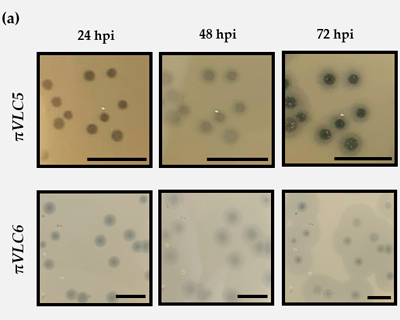Title: Isolation and characterization of novel Klebsiella pneumoniae phages as a tool for phage therapy against resistant strains
Research group: The Environmental and Biomedical Viruses Lab
Bacterial infections are responsible for high rates of morbidity and mortality worldwide. The emergence of resistant strains against current antibiotics represents a serious global threat. Nosocomial infections probably represent the greatest challenge, particularly the ESKAPE group constituted by Enterococcus faecium, Staphylococcus aureus, Klebsiella pneumoniae, Acinetobacter baumannii, Pseudomonas aeruginosa and Enterobacter species. New therapies are needed in order to combat these resistant bacteria, and bacteriophages represent a promising alternative. Within the ESKAPE pathogens, carbapenem-resistant K. pneumoniae strains have been identified as a priority by the World Health Organization. K. pneumoniae is a Gram-negative encapsulated bacterium that can cause pneumonia, urinary tract infections, cholecystitis, diarrhea, osteomyelitis, meningitis, and sepsis. The Klebsiella capsule has been recognized as an important virulence factor, and has been used to classify isolates into distinct capsular types. Lytic phages against K. pneumoniae have been proposed to combat multi-drug-resistant strains. However, Klebsiella shows over a hundred different capsular types and phages are typically specific to one or few such types, imposing a major challenge to the development of phages as efficacious treatments against Klebsiella. In this project, novel K. pneumoniae phages will be isolated and characterized from environmental samples to obtain phages capable of infecting a broad range of capsular types. Convenient combination of these novel phages in a cocktail might allow us to target the majority of Klebsiella capsular types described. Achieving this goal should provide a useful tool for combating K. pneumoniae and should represent an important step forward in the development of phage-based therapeutics.
Pilar Domingo Calap
European Society for Clinical Microbiology and Infectious Diseases (ESCMID)
Universitat de València

















